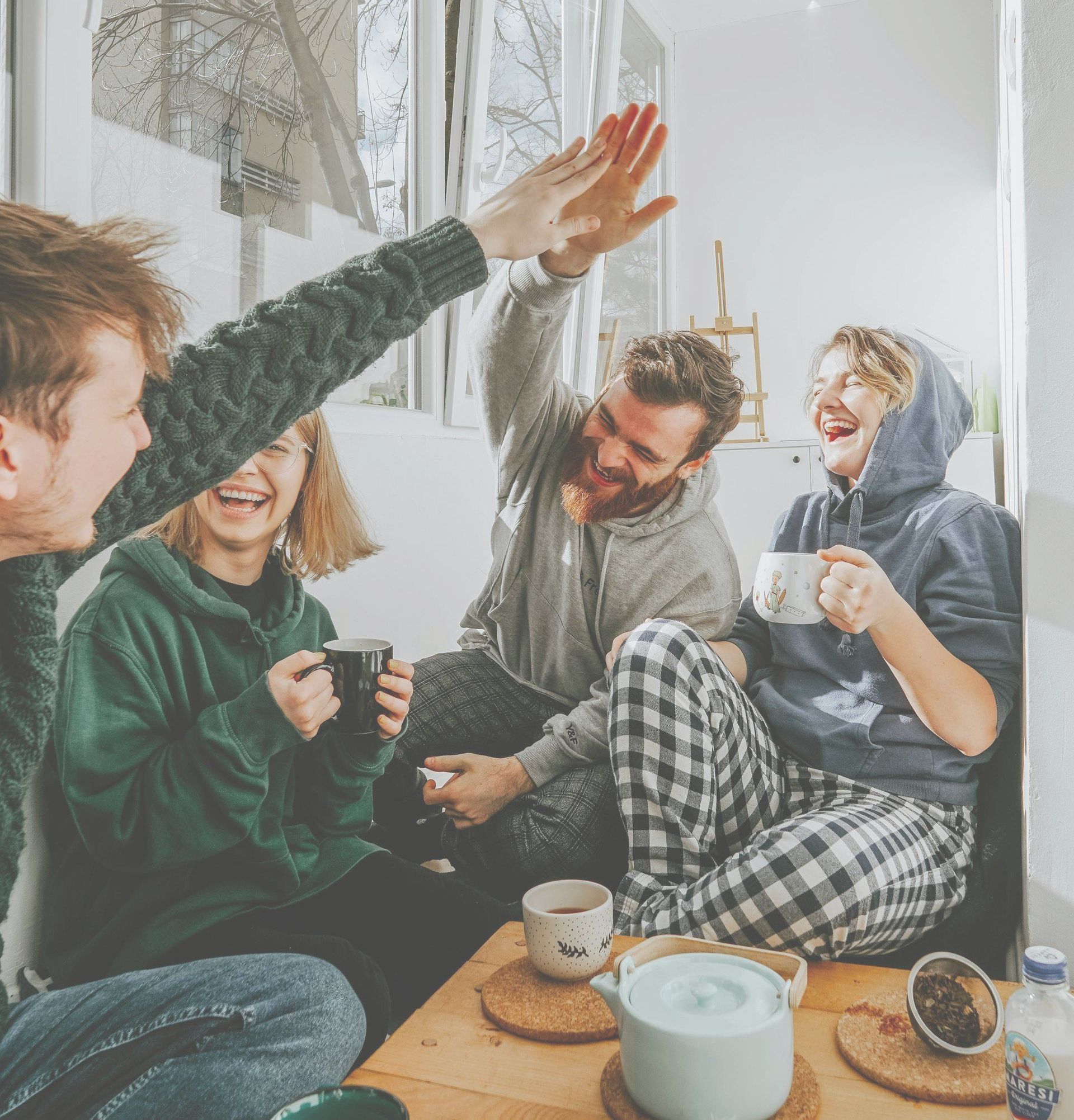Relationships: The Key to Lifelong Happiness
Building good connections with the people around you can boost lifelong mental health.

If you were asked to name the biggest predictor of long-term happiness, what would you say? Financial success? Career accomplishments? Personal freedom? What if it was… relationships?
Not just any relationships, but quality ones—those built on trust, regular positive interactions, and genuine connection. Whether you’re married or single, extroverted or introverted, the research is clear: relationships are a powerful buffer against stress and a vital pillar of emotional well-being.
Why Relationships Matter More Than We Realize
Psychologists have long known that human beings are wired for connection. And it's not just about deep, soul-baring conversations or dramatic declarations of love. The small stuff—the quick smiles, the “How was your day?” check-ins, kissing your spouse—these are the building blocks of emotional resilience.
In fact, studies show that couples who stay happy long-term have a 20:1 ratio of positive to negative interactions. That’s twenty kind, affectionate, or humorous exchanges for every one moment of conflict or criticism. When you're having so many positive interactions, the disagreements and negative sentiments tend to have less impact.
This phenomenon is not limited to romantic relationships. Positive interactions in friendships or even in the workplace can act as a buffer against life’s daily stressors. Research shows that employees with supportive leadership (who give lots of positive interaction) are less likely to suffer the negative impacts of a high-stress work environment. That’s pretty amazing.
Relationships as a Mental Health Buffer
Think about the last time you had a rough day. Maybe work was overwhelming, or parenting drained you completely. Now think about how it felt to talk to someone you trust afterward—a spouse, a friend, maybe even your child. That conversation, that connection, likely soothed something inside of you. It made the burden feel lighter. That’s what relationships do. They give us space to process, regain hope, and remember that we’re not alone.
Extrovert or Introvert? There’s a Fit for You
Let’s be honest—social connection looks different for everyone. If you’re more extroverted, you might need regular, meaningful conversations to feel energized. But if you’re more introverted, community might look like a friendly exchange at your fitness class or seeing familiar faces at the dog park.
There’s even a word for this kind of casual, pressure-free social connection: conviviality.
It’s that web of people around you—neighbors, baristas, dog-walking acquaintances—who bring a subtle, but powerful form of belonging into your daily life. Just a smile and a "hello" can reinforce your place in the world.
Social Media Doesn't Cut It
It's easy to confuse social media for social connection. But studies show that social media interactions, while convenient, lack the emotional depth we truly need. And in some cases, they even contribute to rising levels of depression and anxiety.
The antidote? Go old-school. Pick up the phone. Invite someone for a walk. Linger at the mailbox a little longer to chat with a neighbor. These small choices cultivate the kind of support network that lasts.
A Few Practical Habits That Make a Big Difference
Here are a few small but powerful habits you can start today:
- Take five minutes to truly check in with your spouse, partner, or friend. Ask how they’re doing and really listen.
- Say something kind every day. Even a simple “I appreciate you” goes a long way.
- Kiss your partner for six seconds. (It takes at least that long to trigger the release of oxytocin—the “bonding” hormone.)
- Schedule time to call a friend. Especially if you're feeling low—just one good conversation can lift your mood for days.
- Engage in your community. Join a class, volunteer, or take a regular walk around the neighborhood. Conviviality counts.
The Bottom Line
We all go through seasons of stress, discouragement, or loneliness. But when you’re surrounded by people you trust—whether they’re lifelong friends or just kind neighbors—you build a buffer that protects your well-being. So go ahead. Send that text. Make that call. Smile at the dog-walker. Hug your spouse a little longer. Your mental health will thank you.
__________________________________________________
This blog is a companion to our podcast Beyond the Session which you can stream here: https://open.spotify.com/episode/5yzh6KkHFlrcmnD4UHUwaD
To book a session, please use https://lindsaytsang.janeapp.com
Photo by Toa Heftiba on Unsplash

